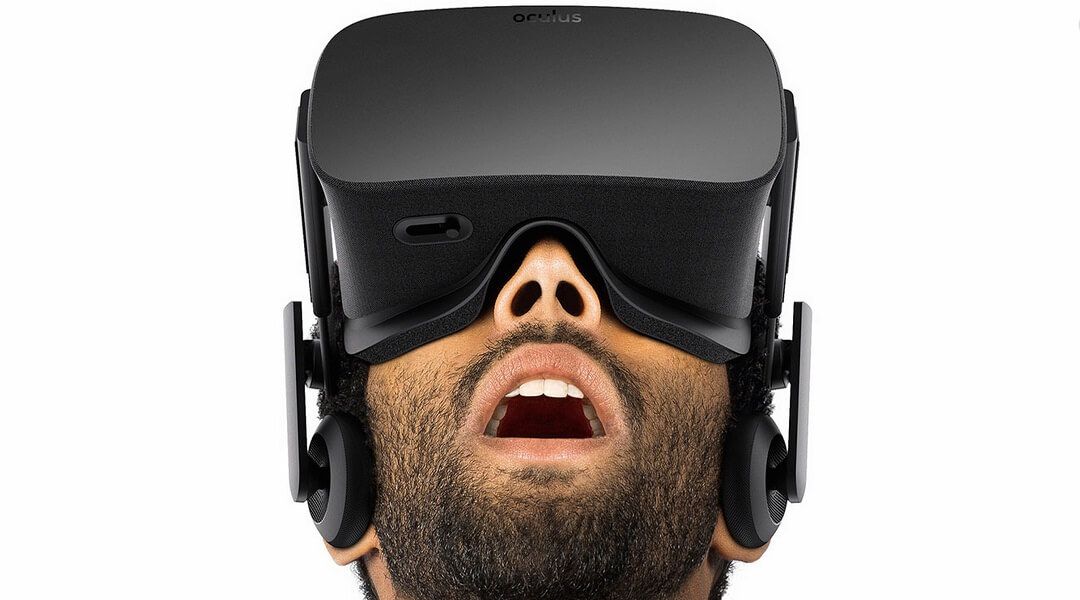2016 will see the release of VR headsets such as the Oculus Rift and PlayStation VR, and one Game Rant writer predicts it will be the next evolution in gaming.
In 2006, an innovative new idea in the gaming world became massively popular, and, in the process, got more people playing video games than ever before. I am not talking about the launch of the PS3, but rather, the Nintendo Wii, a comparably weak device that relied on a motion control gimmick. Now, whether or not the Wii was necessarily a good thing for the gaming industry overall is up for debate, but there's no denying its success, and how excited people become at the prospect of something that is completely different.
And let's face it, the dominant consoles in today's market, the PS4 and the Xbox One, aren't really pushing that many boundaries. Both systems are more or less upgraded versions of their predecessors, and function in largely the same manner. That's not a bad thing; in fact, traditional gaming with a standard controller will probably always be the best way to game. However, at the same time, it's healthy for the industry to explore new ideas, and these new ideas are what get the mainstream excited, and what potentially creates new gamers. I believe the next big gaming innovation that will accomplish this – and explode not unlike the Wii did in 2006 – is the impending launch of consumer model virtual reality technology.
VR is something that has been portrayed in science-fiction for decades, and there have been various attempts over the years to achieve it. Perhaps the most notable foray into VR gaming so far came from Nintendo, with its flop of a console, the Virtual Boy. With technology and understanding of VR both significantly evolved since the days of the Virtual Boy, we are now at the point where a significant, high quality VR product could hit the market and capture the imagination of consumers.
Before I jump into the obvious gaming implications of VR and why those implications get me all giddy inside, it's also worth noting that VR won't be restricted to just gaming. In fact, VR has potential to enhance other forms of media as well, such as movies and TV shows. I believe that VR being useful for more than just gaming will go a long way in convincing non-gamers to adopt the product.
Movie and television applications aside, the driving force behind the VR revolution is undeniably gaming. Leading the forefront of this charge is Oculus Rift, which had a significant presence at E3 this past summer. It was during the Oculus Rift E3 2015 presentation that numerous exciting exclusive games were announced for the headset, such as Insomniac's Edge of Nowhere.
Oculus Rift pre-orders are now open, and it will be interesting to see how many people wind up taking the pre-launch plunge. That being said, the device is suffering a setback in that the Oculus Touch controllers have been delayed, but hopefully the non-motion control launch content is enough to entice consumers to pick up the Oculus Rift when it releases later this year.
Besides the Oculus Rift, the other big VR headset coming in 2016 is PlayStation VR from Sony. Formerly known under the much cooler codename Project Morpheus, PlayStation VR is the PS4-exclusive VR headset that will launch later this year. However, since the Oculus Rift is available to a larger audience, as it works on PCs (and later, Xbox One systems will work with Oculus Rift as well), it may be difficult for PlayStation VR to compete.
2016 will see the release of PlayStation VR, Oculus Rift, and a number of other VR headsets hoping for a piece of the pie. But there is a wildcard in this equation as well, and that wildcard is Nintendo. Nintendo is planning on announcing its next console in 2016, currently known under the codename NX, and rumors point to the NX potentially having VR capabilities. Considering Nintendo's penchant for innovation in the past, I am extremely interested in seeing what the company can dream up in the VR space, assuming the rumors turn out to be true.
Overall, I firmly believe that VR has the potential to change both the gaming world and the entertainment industry in general. Ultimately, final pricing on a lot of these devices may be what determines which VR tech comes out on top, and we'll have to wait and see what 2016 holds on that front. With Oculus Rift retailing for $600, perhaps PS VR, HTC Vive, or another VR headset will come out on top of this hardware race if they release at lower price points, despite the Rift's current mainstream momentum. Regardless of the outcome of this impending VR revolution, however, VR is definitely making it an interesting time to be a gamer.
Which VR headsets do you have your eye on? Are you buying into the virtual reality hype, or do you see it as just another gimmick? Sound off in the comments below and leave us your thoughts on virtual reality technology.

